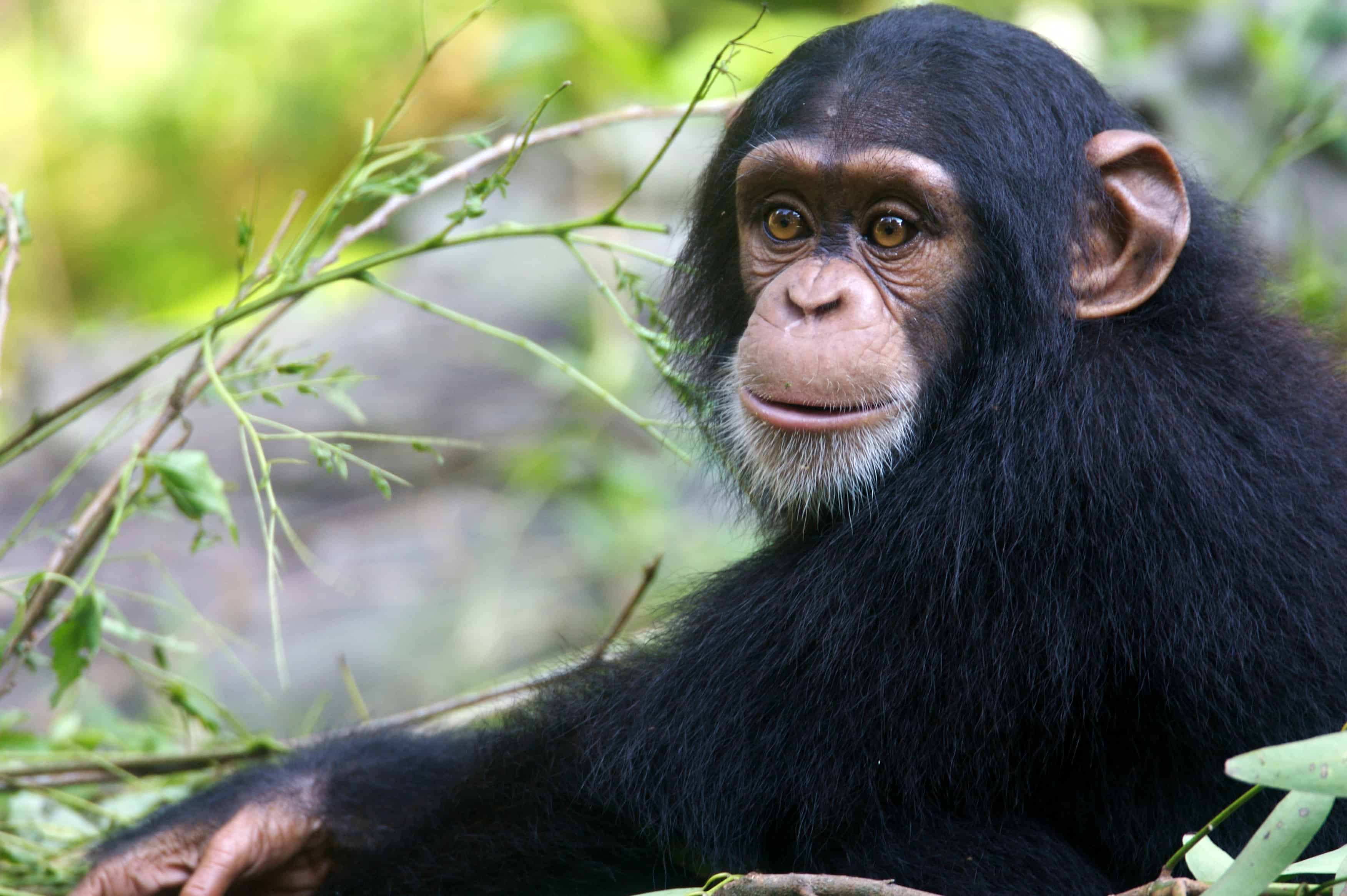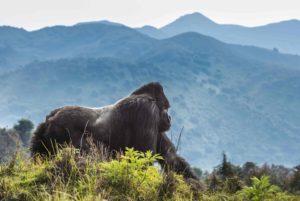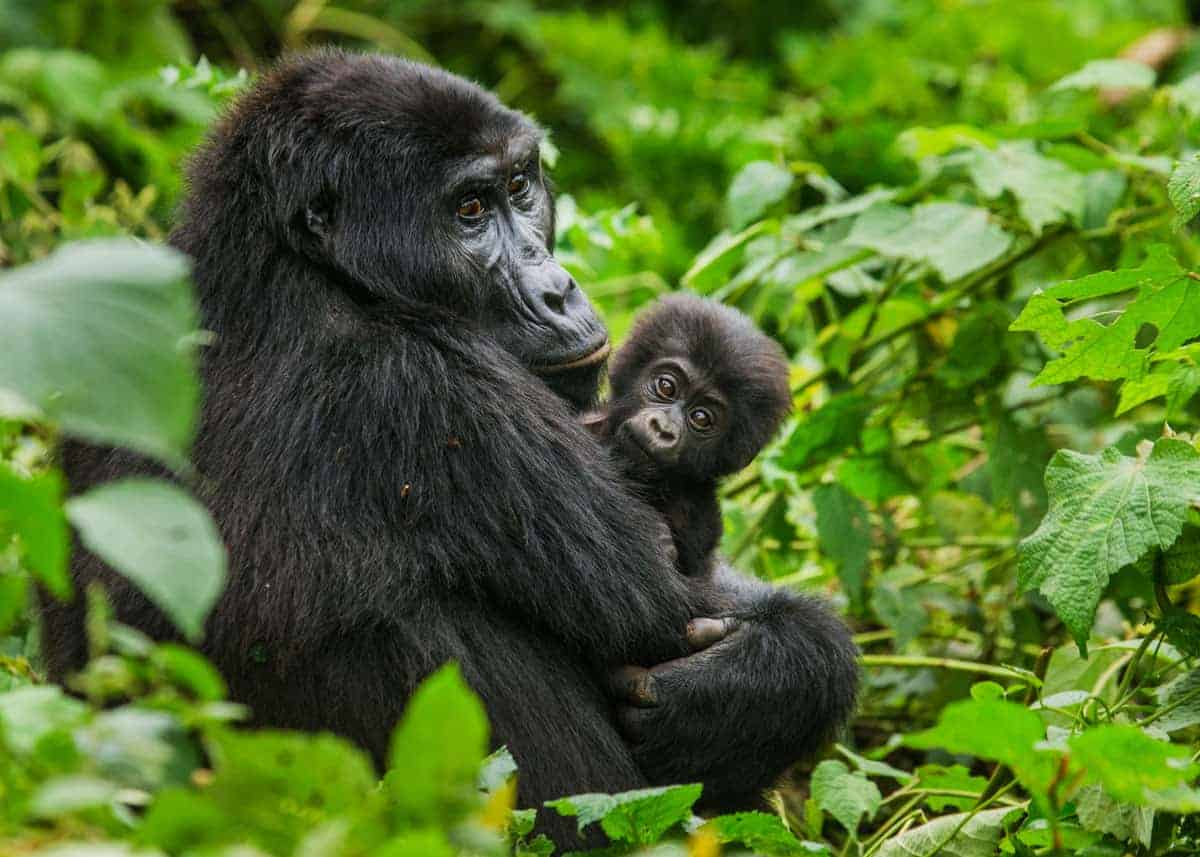Facts About Chimpanzees : Larger apes, or chimpanzees, are extraordinary creatures that live in Africa’s grassy savannahs and tropical jungles. They have four recognized subspecies and are also known as chimpanzees. The genus Pan, which was found by researchers comparing fossils, includes chimpanzees and bonobos. These animals are thought to be related to humans and share between 95% and 98% of their DNA, making them a sister taxon.
Chimpanzees are distinguished from other primates by their bare faces, thick black hair, and distinctive figurative toes, palms, and soles. They weigh 40 to 70 kg for men and 27 to 50 kg for females, making them larger and more robust than bonobos. The average lifespan of a wild chimpanzee is over 25 years, whereas it is 31.7 years for males and 38.7 years for females.
Chimpanzees and humans share 95 to 98 percent of DNA: In terms of biology, chimpanzees and bonobos are substantially more similar to us than gorillas are.
Only in Africa can one find wild chimpanzees: About 21 African nations are home to them, with the majority of them concentrated in East and central Africa countries of Uganda, Rwanda, and Congo etc. Chimpanzees are primarily found in rainforest regions because they require a water source and access to fruits.
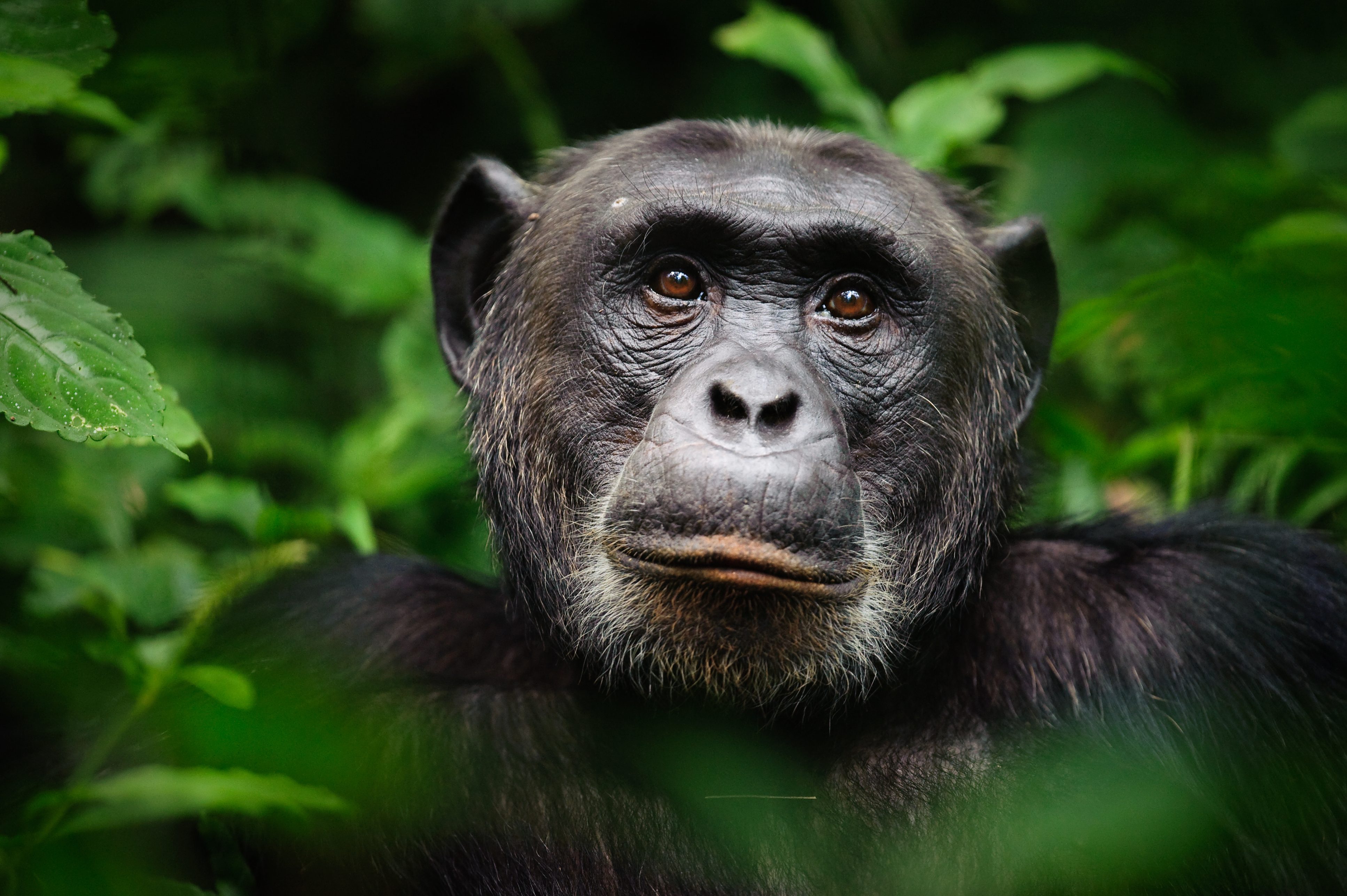
Chimpanzees are capable of learning sign language and other human languages: Chimpanzees in captivity have learned American Sign Language to communicate with their keepers. Washoe, a chimpanzee, is credited with being the first animal other than a person to learn to communicate using American Sign Language. He could do more than 350 signs. Later, Washoe was able to teach her adopted kid basic signals, Uganda Safaris.
Like humans, chimpanzees also live in groups: Chimpanzees live in communities that can contain more than 100 chimpanzees, in contrast to other primates like monkeys and gorillas that live in groups. Smaller groups, like families, friends, and so on, exist within the community and are capable of living their lives without interference from other chimpanzees.
One of the few animals known to use tools is the chimpanzee: Chimpanzees use self-made tools to eat and protect themselves, just like humans do, and have developed clever ways to do it. Chimpanzees are extremely inventive when it comes to employing tools for their benefit, whether it is using small branches to remove termites from termite mounds, breaking boulders to open nuts, or seeking the proper length of twig to scratch themselves.
The chimpanzee are an omnivore animal: They enjoy eating most foods, although they favor fruit over all other food groups. The diverse foods that make up a chimpanzee’s diet include seeds, leaves, insects, honey, and even roots. Nevertheless, they have also been observed killing tiny antelope or monkeys for food. Chimpanzees are known to occasionally work in groups while feeding, but this is rare.
Chimpanzees have intricate social and family structures: They are members of fission-fusion societies, in which the size and makeup alter throughout time and branch off into smaller, frequently interchangeable units. With just one dominating alpha male at the top, extended family units with 20–120 members can develop tight hierarchies.
Only once every five years do female chimpanzees give birth: Typically, just one kid is born from most pregnancies. Chimpanzee infants will cling to their mothers’ furs and ride on their backs until they are between the ages of three and five, resulting in a tight familial tie that lasts even after they reach adulthood, Facts About Chimpanzees.
Chimpanzees have a lifespan of 80 years: Little Mamma, a female prisoner who was between 76 and 82 years old when she passed away in 2017, was the oldest chimpanzee ever recorded. Although chimpanzees kept in captivity typically live to be about 38 years old, it can be challenging to determine how long chimpanzees live in the wild, but one study determined that chimps in Ngogo, in Uganda’s Kibale National Park, live an average of 33 years.
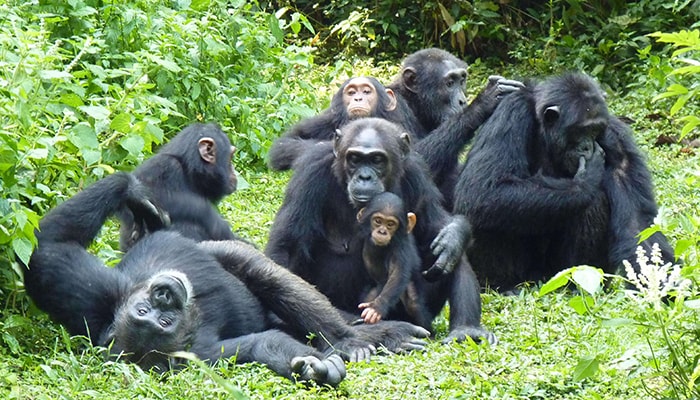
Currently, chimpanzees are a threatened species: The status of the chimpanzee as an endangered species has been determined by the International Union for Conservation of Nature. The natural habitats of chimpanzees have suffered severe degradation and influence as a result of increasing human activities like logging, mining, oil extraction, and highway developments.
In communities, chimpanzees choose their own leaders: Chimpanzees are incredibly democratic and elect their leaders based on the talents and competences each chimp possesses, unlike other primates like monkeys and gorillas, where the strongest individual takes the position of group leader. When a leader loses support, they do occasionally change them.
When compared to other wild animals, chimpanzees are exceptionally intelligent because they have brains on par with humans. They are skilled at problem-solving, using sophisticated vocalizations to communicate, and cooperating when making tools.

